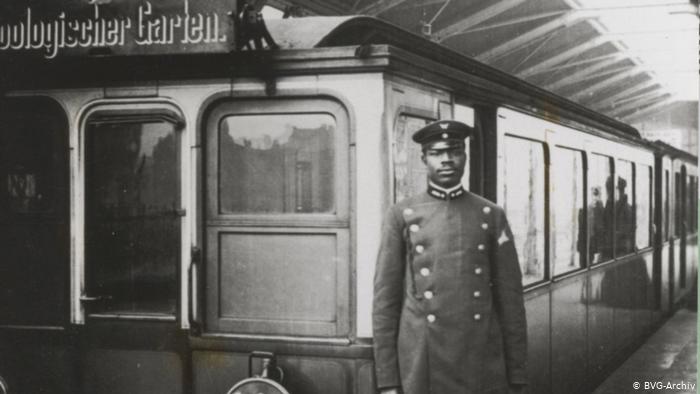This month, I’d love to let you know more about a figure we discussed during the last History Club meeting: Martin Dibobe, Germany’s first Black activist. Dibobe was born in Cameroon and educated by German missionaries. He was brought to Berlin in 1896 as an exhibit in the ‘African village’ of a ‘human zoo’ during a trade fair in the city’s Treptower Park that year. After the exposition was over, Dibobe stayed in Berlin, and married a German woman, fathering two children. He trained as a U-Bahn driver, which also granted him the title of a civil servant, and became involved in political activism, with his sympathies lying with the Social Democrats. In June 1919, the ‘Dibobe Petition’ was submitted to the Reich Colonial Office, by which he demanded the assurance of human rights for those living in the former German colonies, as well as the end of corporal punishment and forced labour. As the colonies were passed from Germany to other European nations, Dibobe’s petition was forgotten. Disappointed, he decided in 1922 to return alone to Africa, but his political reputation preceded him and he was forbidden from returning to his area of Cameroon, now under French occupation. He is presumed to have travelled to Liberia, and traces of him thereafter vanish.

